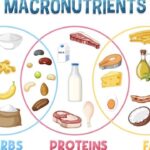For years, low-fat diets have been an integral aspect of public health recommendations. Between 1980 and 1990s, “low-fat” was equated to a healthy lifestyle. Therefore, grocery store shelves were stocked with virtually everything you can think about fat-free including yogurt and chips as it was believed that no fat meant slim waistlines and a healthy heart. However as science changed, our perception on dietary fats too changed and so one wonders whether is low-fat dieting still relevant today? We take a historical perspective on low-fat dieting; analyze the modern evidence available, and then relate it to what is common today in terms of food choices.
The Rise of Low-Fat Dieting
For years, low fat diets have been a key part of public health recommendations. During the period 1980-1990, low fat was synonymous with a healthy lifestyle. For this reason, grocery store shelves were stocked with almost all fat-free products including yoghurts and chips as it was assumed that no fat meant slimmer bodies and healthy hearts.
But as science changed so did our perception on dietary fats and it makes one wonder if there is any relevance for the contemporary age regarding low-fat diet?
Understanding the Science Behind Low-Fat Dieting
More or less fat less body fat was the logic behind low-fat diets, right? Wrong! The primary reason for having low-fat diets is keeping the fat within a person’s range of 20-30% daily calories. So they contended, you could lower your cholesterol, reduce your risk of heart disease and lose weight.
Consequently, low-fat diets emphasized lean meats, whole grains, fruits and vegetables as well as dairy products which are low in fat. Red meats, full-fat dairy products and oils are usually seen as villains.
Many health organizations and physicians have recommended this approach for years, while some individuals witnessed improvements especially for heart health. For example, early studies indicated that cholesterol levels and blood pressure went down when people started following low fat food plans which made most people believe that fat was actually the cause of heart diseases.
Criticisms of Low-Fat Dieting: Where It Went Wrong
Over time more problems with the low-fat diet idea became clear. These diets ignored different kinds of fats. Many do not know that not all fats are bad today. Some fats actually help the body. For example eating olive oil nuts or fish provides healthy fats called unsaturated fats.
On the other hand eating foods with trans fats often hurts your health. These trans fats come from foods made with hydrogenated oils. Even fats once thought to harm everyone have faced rethinking. Some scientists now believe saturated fats might not be as harmful as once believed.
Additionally, low-fat diets led to some unintended results. When manufacturers removed fat from food products they often added sugar and refined carbohydrates instead in order to mask loss of flavor or texture so that these foods would still taste appealing but remain low in fat content.
Thus many processed food items ended up containing empty calories even though they were supposed to help people lose weight. This change has contributed towards increased rates of obesity and metabolic disorders like type 2 diabetes.
Recent studies like the Nurses’ Health Study show that swapping out refined carbs for fat does not cut down heart disease risk. It might even worsen insulin resistance and lead to extra weight gain.
Read also: Does Muscle Weigh More Than Fat? Myth vs. Fact
Comparing Low-Fat Diets to Modern Nutritional Approaches
Through time our understanding on fats has developed along with other dietary paradigms; let’s examine some popular diets today and how they compare with low fat.
- Ketogenic Diet
The keto diet is the opposite of low-fat eating. Instead of staying away from fats it tells people to eat a lot of them while eating very few carbs. This way the body burns fat instead of sugar for energy. Those who like the keto diet talk about quick weight loss. They also mention better insulin use and feeling more energetic.
Studies show it could help with some health problems like epilepsy and type 2 diabetes. However, some experts worry it is not good for the heart. The reason is eating a lot of fat especially if it mostly comes from foods high in bad fat.
- Mediterranean Diet
This diet offers better balance than keto. It includes helpful foods like fish, olives and nuts with fruits, veggies, whole grains and light proteins. A lot of research shows the Mediterranean diet is really good for people with heart problems.
One study from the New England Journal of Medicine found that people who followed this plan had around 30% less chance of getting a stroke or heart attack compared to people on a low-fat diet. Its benefit comes from having “good fats” like monounsaturated and polyunsaturated ones. These help lower bad cholesterol and reduce swelling in the body.
- Paleo and Whole30 Diets
Whole30 and Paleo diets focus on whole foods that are unprocessed. Natural fats from meats, avocados and nuts are allowed on these diets while they exclude processed foods grains or dairy products.
These methods do not dread its presence in their diet like low fat diets as they advocate for consumption of food items in their raw state most times comprising high to moderate composition of healthy fats. Such eating habits may be restrictive but is popular among people wishing to remove inflammation-causing substances from their diets hence their health is improved.
- Balanced Macronutrient Diets (e.g., Zone Diet)
In order to achieve the balance of carbohydrates, fats and proteins, balanced macronutrient diets are created. The Zone Diet recommends ingesting 30% of calories from fat, 30% from protein and 40% from carbohydrates for example. Proponents of such diets justify their claims by saying that a balanced diet helps maintain a healthy metabolism and prolong life.
Contrary to low-fat diets, these approaches provide more flexibility in eating plans and promote increased consumption of healthy fats, which are very important for hormone synthesis, brain function and energy level.
- Plant-Based Diets
Accordingly, nontoxic oily substances form the base of most vegan and vegetarian lifestyle choices; therefore they differ in terms of how much fat each one contains depending on oils used as well as nuts and seeds included among others. Some plant-based dieters may go with low-fat while others may emphasize on whole foods which include healthy fats.
Research indicates that plant based nutrition enhances heart wellbeing, reduces probabilities of chronic illnesses such as diabetes plus it has anti-inflammatory properties. Here balance is of utmost importance; on this note plant eaters get enough amount of fat from avocados, chia seeds or olive oil among other things.
Modern Nutritional Guidelines: Shifting Focus from Low-Fat
Today’s health advice is different from the old low-fat recommendations. The new U.S. Dietary Guidelines (2020-2025) don’t tell people to cut all fat anymore. Instead they talk about which fats are better. Trans fats need to go and it’s good to eat less saturated fat. On the other hand unsaturated fats are considered healthy.
People think in new ways now. Lots of them are more concerned about sugar and processed foods than fat. Avocado toast olive oil on salads and snacks like almonds are really popular today thanks to this new mindset. Even the food industry reacts to this change.
Shelves often have products advertising “good fats” and omega-3s instead of low-fat processed foods.
When Low-Fat Diets Still Make Sense
Some people say bad things about low-fat diets but sometimes they help. If someone has problems with their gallbladder or cannot take in fat well they might need to eat less fat. Also it is possible that others lose weight quickly this way if they work out and do other good things for their health.
Experts usually think these diets do not help in the long run. Often those who remove fat from their meals start eating too many bad carbs instead. This can cause problems with the body’s systems.
The Future of Dietary Fat: What’s Next?
The imminent future of nutrition science seems to be progressively turning towards personalization. Many experts contend that diets should be individually customized instead of having a similar approach for all; factors such as genetics, level of physical activity, and inherent health conditions must always be put into consideration.
These days, fat has been observed to play various roles, more importantly; what kind of substance it is, concerns us most. In most cases unsaturated fats derived from whole food ought to be part of the diet while trans fat needs to be eliminated completely. Fat phobia is a thing of the past and we do have a better understanding about its function in our eating habits
Conclusion
Then again, is low-fat dieting still relevant? For some people like those with certain medical conditions or short-term objectives simplicity will work but generally speaking modern nutritional guidelines do not revolve around having no fat
Present-day nutrition revolves around balance and type of fat being consumed; so it’s time to embrace rather than fear healthy fatty acids from whole foods such as avocados, nuts, seeds and olive oil.
The best way forward as far as dieting is concerned would then be a sustainable one based on whole foods that are not only rich in nutrients but also personalized according to individual needs thereby making it long lasting.



